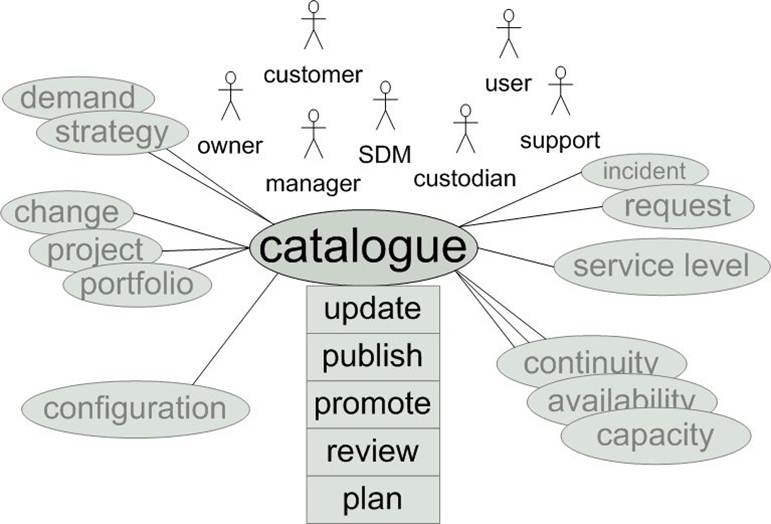2012 #4 technology doesn't solve anything
The IT Skeptic's Skeptical Informer newsletter for 11th November 2012.
I've said it before but it can't be said often enough: technology doesn't solve anything. Any solution is a composite of people, practices and things. Tweet this
I'm re-reading Atul Gawande's brilliant Checklist Manifesto so that I can do a session on it at Pink Elephant's 2013 ITSM Conference. He talks about how the discovery of penicillin created this expectation that medicine could all but do magic, that we could have a pill to cure anything. I feel that the all-but-miraculous advances in IT technology and a terrible deficiency of rational critical thought in IT combine to set similar expectations in our industry: that with information technology we can do anything.
We can't. No technology solves a problem or meets a need or mitigates a risk. Every solution must be a combination of People, Practices and Things. (Or "People, Process, Technology" if you must).
Right now I'm kicking off an engagement with a major client to do a service catalogue. I'm hammering the point that a service catalogue as a document or webpage or website is useless, a waste of money. A service catalogue only has value if it is used widely in the organisation, if it provides the standard top-level taxonomy in many contexts, if people turn to it as a definition of why their role exists, if it frames conversations everywhere.
To deliver value, to provide a return on the investment in building it, a service catalogue must be a system: owner, roles, RACI, strategy, plan, metrics, KPIs, processes, procedures, tools, data, training, integration and interfaces into other systems... The people behind the catalogue must promote its use, ensure awareness of its existence, audit that it is used where it should be, protect it, keep it fresh, steer its future.

The same is true of every Thing. A Thing on its own is inert, dead, useless. Whether it is hardware, software, document or data, a Thing only comes alive when it is owned and maintained and managed and promoted and used. Its implementation /enablement is about behavioural change. Without that it is a waste of money.
How many service desk tool implementations have you seen where people weren't sufficiently trained in how to set up and administer the tool or how to use it in their job tasks or what the taxonomies in it mean? The result is data that is rubbish for reporting or improvement, processes that don't work, and everybody calls the tool broken.
Or server "consolidation" through virtualisation that resulted after a few years in an unmanageable mess of thousands of undocumented virtual servers.
Or systems "designed for 5 nines availability" which failed to deliver because nobody designed the practices to operate it at that level, and nobody recruited and trained "5 nines people" to run it.
Or "knowledge" wikis that soon degenerated into an un-navigable mess of inconsistent, out of date and plain wrong information.
Or miracle tools that will somehow make us better at customer service because they integrate tweets and emails.
Or demented fantasies about how handing end users an iPad, or the right to carry anything they want, will somehow change their productivity.
Or smug technology pundits who think service management is rubbish.
Please stop.
Please stop falling for the vendor crap about out-of-the-box solutions, about benefits derived from a Thing.
Please stop failing to spend money on the People and Practices aspects of a new initiative in order to realise a return on all that money you just handed to the Thing vendor.
Please stop believing in technology as magic.
"People change slowly, so don't expect technology to alter the way business is run."
The Future is About Information, Not Tech
Technology does not fix process (posted in 2006) Once you have the right people doing the right things in the right way, only then can you indulge yourself and spend what is left of the project budget on the shiny geegaws peddled by the vendors.
Transformational technologies are a small view New technologies such as cloud, social media, or mobile personal computing, are seen as much more transformational by some of us in IT. I suspect that is because of our industry's fixation with technology at the cost of people and process.
Keep the vendors and tech geeks away from business automation Take a look at this fabulous case study from McKinsey Quarterly. Reading between the lines it seems to me the vendor's pitch was cobblers. The fancy aspects of the technology delivered nothing. The real gains came from process and culture change.
Please pass this newsletter on to those you think will find it interesting.
If someone sent you this, go here to subscribe to future editions.
Go here to comment on this newsletter or to see other editions of the Skeptical Informer.
Follow the IT Skeptic on twitter: @theitskeptic
Follow the IT Skeptic on Google+
The IT Skeptic's blog
 Blog RSS
Blog RSS
 Comments RSS
Comments RSS
 The IT Skeptic's ITIL News Feed
The IT Skeptic's ITIL News Feed
The IT Skeptic on video


 Made in New Zealand
Made in New Zealand 
